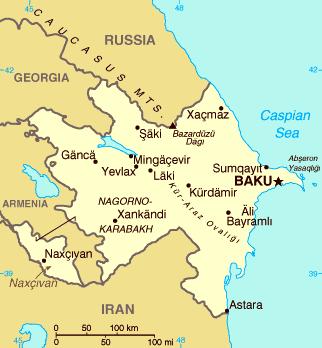BAKU, Azerbaijan -- In its latest effort to wean itself from dependence on the Middle East for its energy needs and to counter rival Russia's influence in resource-rich Central Asia, the United States has signed an agreement with Azerbaijan to examine the feasibility of expanding the so-called Trans-Caspian Pipeline project to transport oil and gas from the region. The remote and isolated nations of Central Asia are the new playing field in the battle for control of the world's dwindling resources of natural gas and crude oil, and Azerbaijan, wedged between Russia and Iran on the Caspian Sea, is a gateway for Western access to the region's energy. The feasibility study, at a cost of $1.7 million to be borne by the U.S. government, would judge the merits of a project to connect Kazakh oil fields to a proposed pipeline beneath the Caspian Sea, while also assessing a possible pipeline that would send additional natural gas to Europe from Central Asia.
U.S.-Azerbaijan Cooperating on Possible Expansion of Trans-Caspian Pipeline

